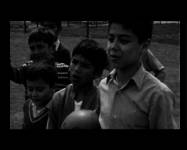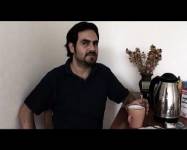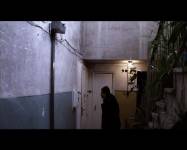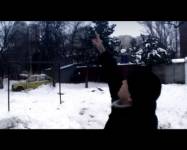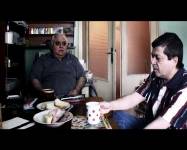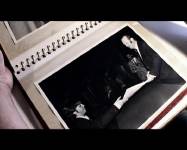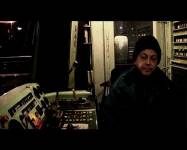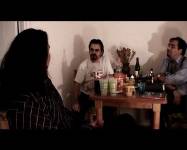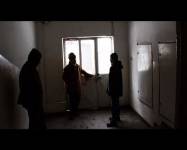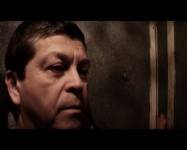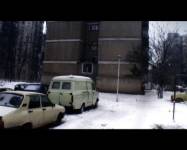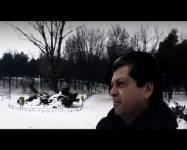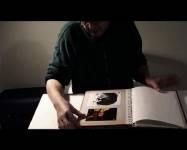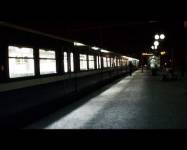| |
|
||||||||||||||||||||
| |
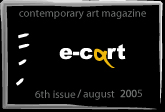 |
|
|
||||||||||||||||||
 |
 |
 |
|
||||||||||||||||||
 |
|
 |
|
||||||||||||||||||
 |
|
||||||||||||||||||||
 |
|
||||||||||||||||||||
| |
|
||||||||||||||||||||
| |
|
 |
|
||||||||||||||||||
 |
|
||||||||||||||||||||
 |
 |
|
|
||||||||||||||||||
| |
 |
 |
|
||||||||||||||||||
| |
 |
|
 |
 |
 |
|
|
|
|||||||||||||
| |
|
||||||||||||||||||||
| |
|
||||||||||||||||||||
 |
|
||||||||||||||||||||
 |
|
||||||||||||||||||||
 |
|
||||||||||||||||||||
 |
|
||||||||||||||||||||
 |
|
||||||||||||||||||||
 |
|
 |
|
||||||||||||||||||
 |
|
||||||||||||||||||||
| |
|
|
|
|
|
|
|
|
|
|
|
|
|
|
|
|
|
|
|
|
|
El Passaje/ The Passage
A film by Stefan Constantinescu
Stefan Constantinescu's new film, El Passaje (the passage), is about the existential transition of three Chileans who were forced to leave Chile after the Pinochet controlled coup d'etat of 1973. All three ended up living under Nicolae Ceausescu's communist dictatorship, and over time, two of them left for Sweden. El Pasaje is a film about refugees, strangers, the past, prejudices and loneliness.
The artist Stefan Constantinescu, born in Bucharest in 1968, gained notice in Sweden in 2004 with his film "Dacia", but he had already awakened interest in Vilnius and Bucharest with his previous project "The Archive of Pain". The latter is a project produced together with film director Cristi Puiu and graphic designer Arina Stoenescu. The project deals with the 1945-1965 period and concentrates on the confessions and destinies of former political prisoners in Romania. In "Dacia", his video project from 2003, Constantinescu presents, in a more or less autobiographical manner, the period 1968-2000 and has as its focus the Dacia 1300 car, a Romanian version of Renault. Dacia is the most representative symbol of Ceausescu's communism, a symbol of the working class "victory over time". The project was presented among others in the Norrkoping Konstmuseum, Museum of the Romanian Peasant, Vector Gallery in Iasi, H.arta Gallery in Timisoara and Wurtembergischer Kunstverein in Stuttgart.
Due to both its documentary characteristics and its indirectly autobiographical format, El Pasaje in many ways recalls "Dacia". In some ways, everything began on the 11th of September 1973, when Salvador Allende was assassinated during the coup d'etat - when three Chileans were forced to leave, alongside a few thousand others, and were brought by fate to Romania.
The three primary destinations of the 200 000 political refugees who left the country after 1973 were the USA, Argentina and Sweden. Meanwhile, Ceausescu's Romania functioned as a connection between South America and the former Eastern bloc. Two of the refugees interviewed by Stefan Constantinescu ended up in Sweden. One of these is Pedro Ramires, a main character in the film, who now works as a train security guard. Even though he has completed studies in law and as a cameraman, he commutes between Stockholm and the city's outskirts. His story is pieced together through his melancholic description of estrangement, isolation, and political oppression.
Encouraged by his mother, he illegally crosses the border into Peru in 1974. He arrives in Lima, where he contacts embassies of various countries: Cuba, Czechoslovakia, East Germany, England, Romania, etc. Because he doesn't hold membership in any party, he is only granted entry into two countries. He must choose between England and Romania. Pedro chooses "the communist paradise", Romania, something he has never regretted. He flies from Lima to Germany with the help of the UN Commission for refugees. In Germany, he boards a Tarom charter to Bucharest.
After a day of waiting, a representative of the Ministry of Foreign Affairs receives him along with other Chileans. Soon after, he receives an apartment together with two fellow Chileans, and after two weeks he leaves to go to Iasi and subsequently to Cluj-Napoca. There, together with tens of others Chileans, he attends language schools for the year to follow.
Pedro decides to study at the Institute for Theatre Arts and Film in Bucharest in order to become a cameraman. He had taken a few pre-requisite courses at "Babes Bolyai" University in Cluj-Napoca with various members of the film and theatre world. The admission process for Chileans to the Institute for Theatre Arts and Film was only a formality compared to the tough entrance exams that Romanians had to undergo. Most of the accepted Romanian students had to use their personal contacts for admission.
Pedro develops a great passion for studies and is appreciated by his professors; he helps out as cameraman during many film shootings and even during the filming of some projects ordered by the Ministry of Education. After four years of studies he graduates and receives a job as a cameraman at Buftea Film Studios near Bucharest.
Like most Chileans, Pedro goes abroad each summer. With the help of some friends he goes to Sweden to work at various jobs for which he is overqualified. He arrives in Sweden in 1980 with the plan of continuing his studies and working as cameraman. After many attempts, he manages to film a few low-budget projects, but neither his Romanian education, nor the follow-up studies in Sweden are able to help him very much.
He regrets leaving Romania out of fear, and that he accepted the lukewarm position he was offered within Swedish society. He says that Romania is the only place he hasn't felt as a stranger since he left Chile, and he would love to return to Romania and visit the places and friends that he left behind almost twenty-five years ago.
Today Pedro works as a train security guard and lives in Stockholm.
El Pasaje is 62 minutes long. The story of three Chileans is told with the aid of interviews, how they arrived in Romania via Peru, how they were welcomed and received apartments in two neighborhoods in Bucharest, how they attempted to adapt to a country that politically corresponded to their ideals, how their dreams faltered, and some ended up in Sweden, a country where they had heard that dreams could come true. One of the refugees still lives in Romania, one of them left Sweden after 23 years and is now trying to adapt to a new country, his own, Chile.
The film also contains footage of Pedro's first film shot in Bucharest and music from the group Inti Ilimani, a symbol of Chilean resistance and Agnetha Faltskog's song, "Thank you for this wonderful ordinary day".
The project was financed by Konstnarsnamnden, Sweden.
English translation:
Andreea Carnu
